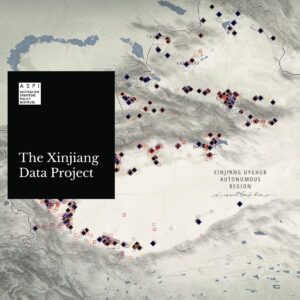
Xinjiang Documentation Project
Project Name: The Xinjiang Documentation Project
The Official Website: https://xinjiang.sppga.ubc.ca/
Project Overview
The Xinjiang Documentation Project is a multi-disciplinary research project based at the Institute for Asian Research in the School of Public Policy and Global Affairs at the University of British Columbia and the Gender, Sexuality, and Women’s Studies Department at Simon Fraser University. The Project collects, preserves, assesses, and makes available documentary information on the extrajudicial detention of Uyghurs, Kazakhs, and other ethnic groups in Xinjiang Uyghur Autonomous Region, Northwestern China. Our scope and priorities are: making key documents available, assessing their reliability, presenting the material for the general public, and giving a platform to share the lived experiences, providing regular updates on the ongoing situation in the region, and organizing periodic speaker series.
The Project aims to provide a reading guide about the recent developments, experts’ explanations, as well as an understanding of what ethnic Uyghurs and Kazakhs experience on a daily basis. It further aims to integrate research methods from social science, humanities, and other disciplines for the documentation and analysis of the on-the-ground situation.
Resources will be updated regularly. Learn more about the project in this interview with SFU, or refer to our open-access article in Education about Asia for information on how to use it in the classroom.
Background
Since 2017, the government of the People’s Republic of China (PRC) has been holding Uyghurs, Kazakhs, and other ethnic groups in internment camps throughout Xinjiang Uyghur Autonomous Region, Northwestern China. While the Chinese Communist Party (CCP) leadership claims that the extrajudicial detainment of these groups is part of the country’s fight against terrorism, these developments have also drawn widespread international criticism of potential human rights violations. Researchers have estimated that a million or more people have passed through the state’s internment camps, officially called “vocational education and training centers,” since the policy began.
The government maintains that these sites combat religious extremism and promote closer identification with the state. Critics charge that these camps facilitate cultural genocide, break apart families, and enable the government to coerce labour from detainees. Reliable and systematic documentation of the ongoing situation is critical because of the size and scope of these activities, the silence and fear experienced by those affected, and the state-directed erasure of existing evidence.

